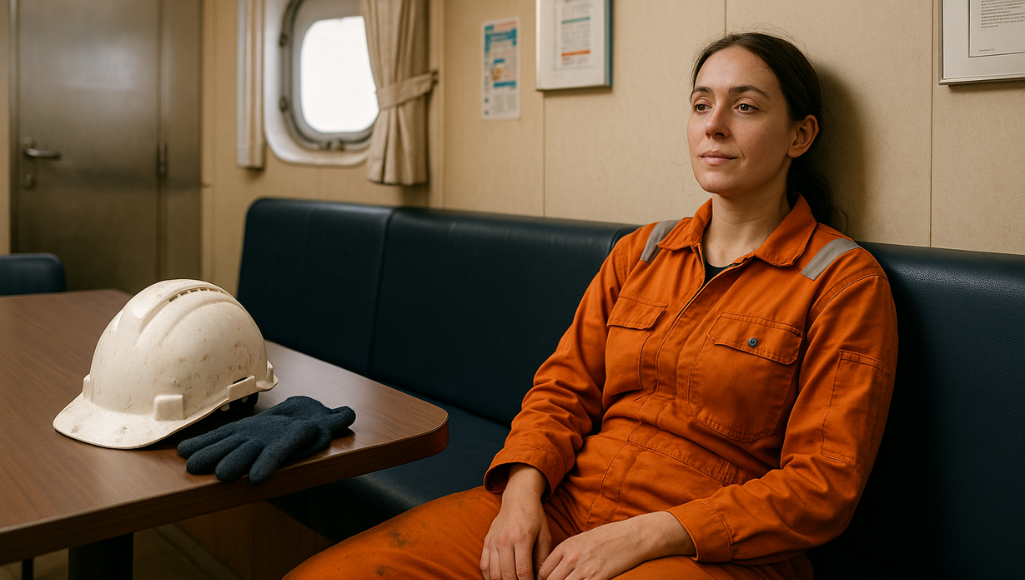
More Than Just Key Workers: The Case for Preventative Health in the Maritime Industry
This past month, representatives from governments, shipowners and seafarers’ unions met at the International Labour Organization (ILO) headquarters in Geneva. Held from 7 to 11 April, the gathering introduced significant amendments to the Maritime Labour Convention (MLC), addressing the evolving needs of seafarers and the maritime sector. These amendments are set to take effect in 2027.
One of the most notable changes was the formal recognition of seafarers as key workers, reflecting the essential role they play in global trade. The COVID-19 pandemic highlighted their importance, yet many were left without the basic support they needed. These amendments aim to correct that gap and provide seafarers with the recognition and protection they deserve.
In addition to this recognition, the amendments enhance repatriation rights, improve access to shore leave without visa restrictions, and strengthen protections against bullying and harassment on board. The MLC also now recommends that ships carry the International Chamber of Shipping’s (ICS) International Medical Guide for Seafarers and Fishers.
While these updates are meaningful, they primarily address issues after they occur. Repatriation and emergency medical care are vital, but they do not prevent health issues from arising in the first place. To truly safeguard seafarer wellbeing, the industry must adopt a preventive care model.
Preventive care goes beyond responding when something goes wrong. It creates a healthier, more resilient environment by addressing potential issues before they develop. Seafarers operate in some of the world’s most physically and mentally demanding settings, often spending long periods away from home in high-pressure conditions with limited downtime. These factors amplify stress and strain, both physically and mentally. When one suffers, the other often follows.
A preventive care model helps to proactively manage physical and mental health challenges before they escalate. Early intervention through regular screenings, mental health support and improved working conditions can reduce costly medical evacuations, limit downtime and boost crew performance. Healthier crews experience fewer injuries, less fatigue and reduced burnout, all of which enhance operational efficiency. Better health also helps prevent serious accidents, such as ship collisions, by improving alertness and decision-making. The result is fewer incidents and disruptions, as well as lower recruitment and training costs.
This model also offers clear benefits to P&I clubs. By reducing incidents and managing crew health proactively, clubs can limit exposure to medical claims and liability costs. Regular health monitoring prevents issues from escalating into emergencies that require expensive treatment or evacuation. With fewer claims, premiums may fall, creating a more stable financial outlook for insurers and their members.
Although the collapse of the Francis Scott Key Bridge in Baltimore, caused by the container vessel Dali in 2024, was not directly linked to crew health, it illustrates how broader operational failures can stem from gaps in support. With better access to health resources, the crew may have had the focus and resilience to properly handle the mechanical issues that led to this incident. While preventive care cannot eliminate every risk, it can substantially reduce the likelihood of such high-impact failures.
The benefits of preventive care are often invisible, defined by what doesn’t happen: fewer accidents, lower turnover and reduced claims. Over time, this approach leads to healthier crews, safer ships and fewer avoidable disasters. Ultimately, it helps support long-term financial sustainability for shipowners and P&I clubs alike.
These amendments represent a positive first step, but more is needed. With satellite Wi-Fi and other technology readily available, shipowners now have the tools to provide seafarers with ongoing access to care. The infrastructure exists. What’s required is a firm commitment to implementing preventative solutions. Without this shift, the risks to crew welfare and operational performance will continue to rise, along with turnover, incidents and costs.
Recognizing seafarers as key workers is an important milestone, but it’s only the beginning. Embracing preventive care is essential to safeguarding the wellbeing of seafarers and ensuring a resilient and sustainable maritime industry.


